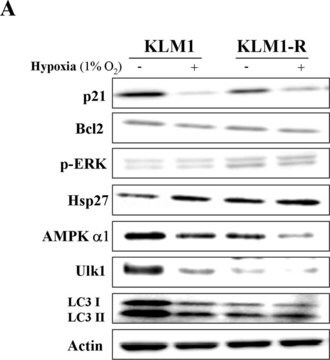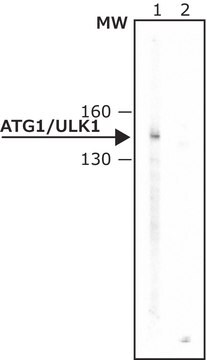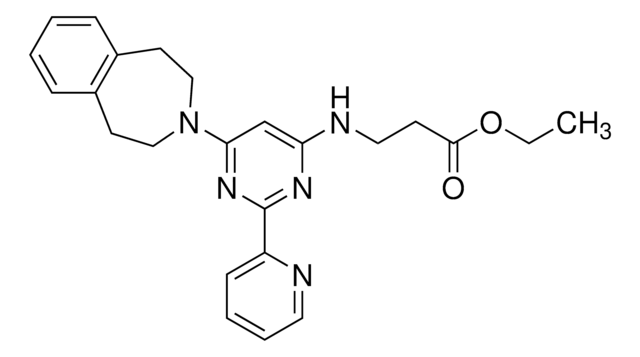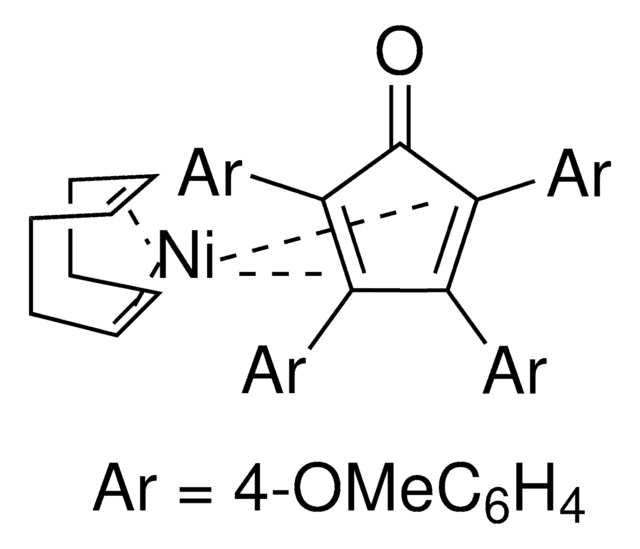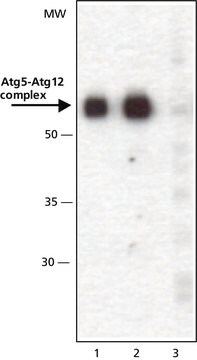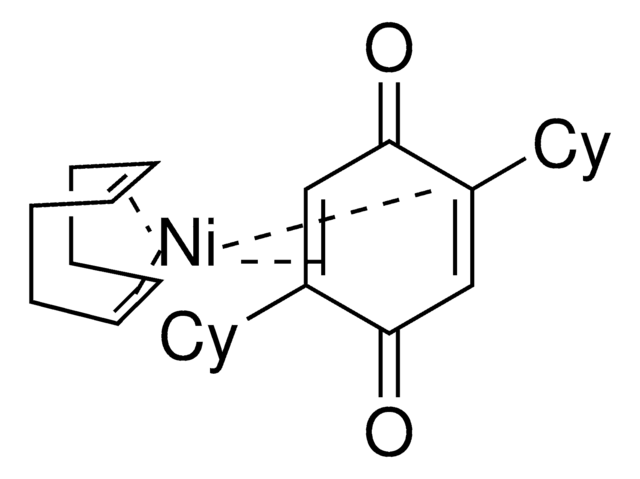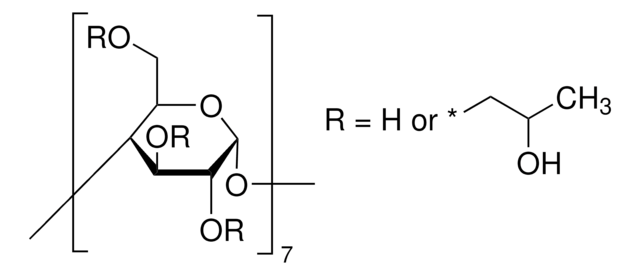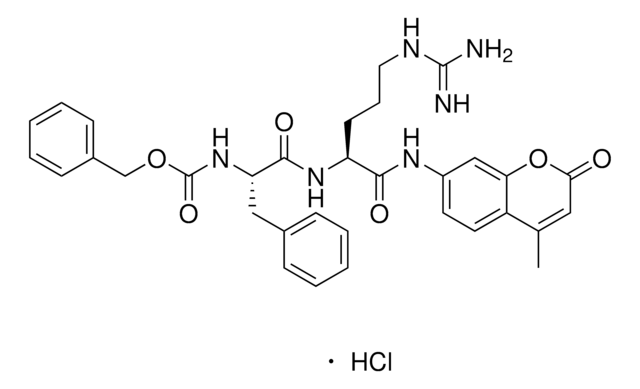추천 제품
일반 설명
ULK1 or autophagy-related protein 1 homolog (ATG1) is a serine/threonine protein kinase. It is a ubiquitously expressed protein that is highly abundant in the brain, skeletal muscle, and heart. It is involved in the signaling pathway of mTOR receptors leading to the regulation of autophagy in nutrient-deprived cells. mTOR may interact with ULK1 as a complex of ULK1/FIP200/Atg13. ULK1 may play an important role in neuronal development: Elimination of ULK1′s enzymatic activity by targeted disruption of its kinase domain has blocked the outgrowth of neurons in the developing mouse brain, possibly by blocking the ULK1-mediated trafficking of neurotrophins.
면역원
KLH-conjugated linear peptide corresponding to a region near the C-terminus of human ULK1 phosphorylated at Ser777.
애플리케이션
Anti-phospho ULK1 Antibody (Ser777) is a highly specific rabbit polyclonal antibody, that targets Autophagy-related protein & has been tested in western blotting & Peptide Inhibition Assay.
Evaluated by Western Blotting/Peptide Inhibition Analysis in A431 cell lysate.
Western Blotting/Peptide Inhibition Analysis: 2 µg/mL of this antibody detected phospho ULK1 (Ser777) in 10 µg of A431 cell lysate.
Western Blotting/Peptide Inhibition Analysis: 2 µg/mL of this antibody detected phospho ULK1 (Ser777) in 10 µg of A431 cell lysate.
품질
Evaluated by Western Blotting in A431 cell lysate.
Western Blotting Analysis: 2 µg/mL of this antibody detected phospho ULK1 (Ser777) in 10 µg of A431 cell lysate.
Western Blotting Analysis: 2 µg/mL of this antibody detected phospho ULK1 (Ser777) in 10 µg of A431 cell lysate.
표적 설명
~120 kDa observed
기타 정보
Concentration: Please refer to the Certificate of Analysis for the lot-specific concentration.
적합한 제품을 찾을 수 없으신가요?
당사의 제품 선택기 도구.을(를) 시도해 보세요.
Storage Class Code
12 - Non Combustible Liquids
WGK
WGK 1
Flash Point (°F)
Not applicable
Flash Point (°C)
Not applicable
시험 성적서(COA)
제품의 로트/배치 번호를 입력하여 시험 성적서(COA)을 검색하십시오. 로트 및 배치 번호는 제품 라벨에 있는 ‘로트’ 또는 ‘배치’라는 용어 뒤에서 찾을 수 있습니다.
Hyowon Choi et al.
Autophagy, 12(9), 1631-1646 (2016-06-18)
Nucleus pulposus (NP) cells reside in the avascular and hypoxic microenvironment of intervertebral discs. Importantly, many activities related to survival and function of NP cells are controlled by the HIF-family of transcription factors. We hypothesize that NP cells adapt to
Prasun Guha et al.
Cell reports, 26(10), 2692-2703 (2019-03-07)
Autophagy plays a broad role in health and disease. Here, we show that inositol polyphosphate multikinase (IPMK) is a prominent physiological determinant of autophagy and is critical for liver inflammation and regeneration. Deletion of IPMK diminishes autophagy in cell lines
Ayaka Sugiura et al.
Immunity, 55(1), 65-81 (2021-11-13)
Antigenic stimulation promotes T cell metabolic reprogramming to meet increased biosynthetic, bioenergetic, and signaling demands. We show that the one-carbon (1C) metabolism enzyme methylenetetrahydrofolate dehydrogenase 2 (MTHFD2) regulates de novo purine synthesis and signaling in activated T cells to promote proliferation and
Chao Liu et al.
Scientific reports, 7(1), 4543-4543 (2017-07-05)
Nucleus pulposus (NP) cells reside in a physiologically hyperosmotic environment within the intervertebral disc. TonEBP/NFAT5 is an osmo-sensitive transcription factor that controls expression of genes critical for cell survival under hyperosmotic conditions. A recent report on NP and studies of
문서
Autophagy is a highly regulated process that is involved in cell growth, development, and death. In autophagy cells destroy their own cytoplasmic components in a very systematic manner and recycle them.
자사의 과학자팀은 생명 과학, 재료 과학, 화학 합성, 크로마토그래피, 분석 및 기타 많은 영역을 포함한 모든 과학 분야에 경험이 있습니다..
고객지원팀으로 연락바랍니다.